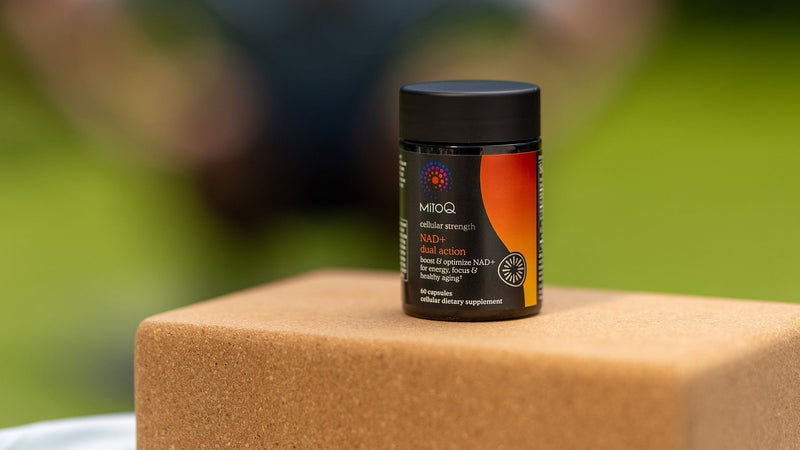Exploring the potential benefits of Maritime Pine Bark
Read more
Calculated at checkout
$0.00 USD

There's nothing like setting up camp under a big, shady pine tree, but did you know that majestic pines can offer more than just a leafy patch to sit under? Read on to learn more about the health benefits of maritime pine bark.
Maritime pine trees, also known by their scientific name Pinus pinaster, belong to an ancient genus of evergreen trees that are native to countries along the Mediterranean Sea, including France, Spain, Morrocco and Portugal. Originally used in traditional medicine the world over, pine bark extract offers powerful antioxidant and anti-inflammatory qualities, along with a host of other health benefits.
Pine bark extract (Pycnogenol®) was one of the first commercial pine bark products launch globally and it continues to be one of the most common proprietary products on the market. Formulated from French maritime pine bark, a pine tree native to France, the therapeutic benefits of Pycnogenol® have been studied extensively in over 160 clinical trials.
Many indigenous cultures have used the bark, nuts, needles and resin of pine trees as a herbal supplement to support many problems from coughs and wounds to stress and brain function.
While pine bark extract contains a number of bioactive compounds, including vitamins, bioflavonoids and other phytonutrients, it's especially rich in polyphenols which offer a range of health benefits. Of these polyphenol nutrients, procyanidins, catechins and phenolic acids are the most prevalent. It's these polyphenols that are often credited for pine bark extract's anti-inflammatory, antioxidant and antimicrobial effects. As an antioxidant, maritime pine bark extracts help neutralize damaging free radicals in the body. Free radicals are highly reactive molecules that can cause cellular harm and contribute to various chronic health conditions. By reducing oxidative stress, maritime pine bark may help protect cells and tissues from damage.
Pine bark extract is also a great source of vitamin C, as was discovered by French explorer Jacques Cartier when he used French maritime pine bark to help treat sailors struggling with scurvy.
Pine bark extract continues to gain popularity as a herbal supplement. While more clinical studies on human subjects are needed to fully understand the impacts of pine bark extract, there is early evidence to suggest maritime pine bark extract could be used to address various health issues.
Many of the therapeutic benefits of maritime pine bark extract stem from its anti-inflammatory and antioxidant properties. As a natural antioxidant, maritime pine bark extract helps to protect the body against oxidative stress caused by free radicals.
Maritime pine bark also possesses anti-inflammatory properties that may help regulate the body's inflammatory responses, so by managing inflammation, maritime pine bark could benefit overall health and well-being.
Maritime pine bark has been used by indigenous cultures as a traditional medicine to help with wound healing, coughs and other ailments. Nowadays, maritime pine bark is used as a herbal supplement thanks to its antioxidant and antimicrobial effects.
Maritime pine bark extract has shown potential in supporting a number of health issues. Here are just some of the human health benefits of maritime pine bark.
Some studies have suggested that the main bioactive compounds in maritime pink bark, like flavonoids and procyanidins, may help support healthy blood sugar levels within normal ranges. While the exact mechanisms still aren't fully understood, it's thought that maritime pine bark extract may help to improve insulin sensitivity and enhance blood glucose control to promote healthy blood sugar levels.
Whether you're suffering from age-related cognitive decline or certain lifestyle factors are impacting your brain function, there's research to indicate that pine bark extract may aid in healthy brain function. These brain health benefits are believed to stem from pine bark extract's antioxidant effects and neuroprotective functions by protecting brain cells from oxidative damage.
Research has found pine bark extract may help to support healthy blood pressure levels and support heart health thanks to its antioxidant properties. It might help improve blood flow, and enhance the health of blood vessels.
In the same way that maritime pine bark extract can boost nitric oxide (NO) levels in the body. NO is a vasodilator and can help with sexual function, studies suggest that improved NO levels can also positively impact athletic performance and recovery. It's possible that pine bark may even help to reduce muscle cramps and pain post-exercise.
There's no denying that there's a fine line between getting enough vitamin D and excessive sun exposure. With that said, early evidence suggests that Pycnogenol® supplementation may help to support skin health by offering protection against UVB rays, reducing photodamage and boosting skin barrier function.
Thanks to its anti-inflammatory properties, studies suggest that maritime pine bark extract (Pycnogenol®) may help to regulate the immune system and even help to fight the common cold by reducing the duration and severity of cold symptoms.
While early research into the benefits of maritime pine bark extract is promising, further investigation is still needed to support its many uses.
Before introducing pine bark supplementation to your routine, it's always worth talking to your healthcare provider. While adverse effects are unlikely, maritime pine bark extract can interact with certain prescription medications, including immunosuppressants, blood thinners and antidiabetic medications.
Typical daily dosages of Pycnogenol® supplementation range from 50mg to 300mg daily. The amount of pine bark extract you should take will depend on your health goals, body weight, age and your reason for taking the supplement. As a general rule, it's best to start with a lower dosage and gradually increase it if necessary.
Maritime pine bark extract supplements are available in a range of forms, including capsules, liquids and powders depending on your preferences. If you're considering taking maritime pine bark as a supplement, it's important to follow the recommended dosages and usage instructions provided on the product label.
The timing of when you take maritime pine bark can also vary based on your preferences and the purpose of taking the supplement. Some people prefer taking it with meals to enhance absorption, while others might choose to take it separately. In some cases, it's recommended to take 50mg of pine bark extract 2-3 times a day for the best results. It's generally recommended to follow the instructions provided by the manufacturer.

Dr. Siobhan Mitchell, PhD, MitoQ's Chief Science Officer, recently joined Nathalie on The Longevity Podcast for an illuminating conversation about mitochondrial health and its central role in the aging process. Learn more here.
Sep 18, 2025 |3 mins to read

Antioxidant Science | Health & Nutrition | Products & Ingredients
Most NAD+ boosters only go halfway. Learn why MitoQ’s dual-action formula increases NAD+ and optimizes its use for real energy, focus, and healthy aging.
Sep 16, 2025 |4 mins to read